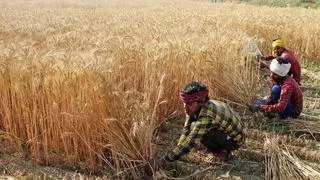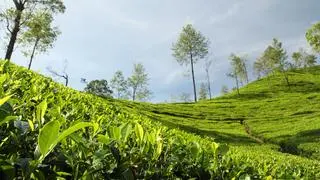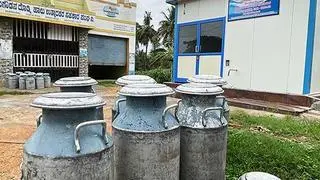With Brent crude oil prices plunging to a four-year low at $88 a barrel, natural rubber prices, too, are set to come under pressure. This is more so because as crude prices drop, the rates of synthetic rubber will also drop.
“Already, supply exceeds in the global rubber market. Thailand and China had a lot of unreported stocks. These are coming to the markets, putting pressure on prices. On top of this, the fall in crude oil prices spells bad news for rubber growers,” said CP Krishnan, Whole Time Director, Geojit Comtrade Ltd. On Tuesday, Brent crude oil futures slipped to $87.76 a barrel for delivery in November. US crude ruled at $84.75.
Rubber prices, however, improved in Asian market as China came up with better trade data and on talks of producers in South-East Asia planning supply curbs. Rubber contracts for delivery in March were quoted at ₹105.63 a kg on the Tokyo Commodity Exchange. In the domestic spot market, RSS 4 (ribbed smoked sheet) grade ended flat at ₹122.50 a kg, though futures improved on the National Multi Commodity Exchange.
“Natural rubber prices move in tandem with crude oil prices. But we see something positive in South-East Asian producers such as Thailand and Malaysia saying they won’t sell lower than current prices. This is a positive development in the last few months,” said N Dharmaraj, Vice-President of United Planters’ Association of Southern India.
“The fall in crude oil prices is a major problem. It will make synthetic rubber cheaper. As a result, natural rubber prices will drop and growers will lose interest in nursing their plantations and tapping rubber,” said N Radhakrishnan of Cochin Rubber Merchants Association.
“Prices of synthetic rubber will have an influence on domestic rubber prices. As such, natural rubber prices are dropping on quality issues,” said Rajiv Buddhraja, Director-General, Automotive Tyre Manufacturers’ Association, a body for tyre manufacturing firms in the country.
Data show the share of synthetic rubber in total consumption increased in the first quarter this year to 58.9 per cent against 57.6 per cent last year. They also show a 15,000-tonnes supply surplus in synthetic rubber against 81,000-tonnes deficit in natural rubber.
Global natural rubber production increased to 2.72 million tonnes (mt) in the first quarter this year against 2.69 mt in the same period a year ago. Its consumption increased to 2.81 mt against 2.67 mt. On the other hand, synthetic rubber output increased to 4.04 mt against 3.87 mt during the period and consumption was up at 4.03 mt against 3.83 mt.
In India, natural rubber production during the period increased to 1.67 lakh tonnes against 1.50 lakh tonnes, while synthetic rubber output was up at 37,29 tonnes against 26,682 tonnes.
On the price front, RSS-3, used mainly by the tyre manufacuters, dropped to $2,118 a tonne in the second quarter this year against $2,251 in the first quarter and $2,795 last year. Synthetic rubber prices increased to $2,735 a tonne in the second quarter from $2,568 in the first quarter but were lower than last year’s $2,740.
“As availability of natural rubber is high, buyers in the global market may not go for it. Rubber is in a bearish mode. The only bright spot is the recovery in the US economy,” said Geojit’s Krishnan.
“At current prices in the domestic market, growers are getting only ₹107-108 a kg. Production has been dropping over the last 3-4 years,” said Radhakrishnan. “Lower prices means production can be affected in the coming years too. Natural rubber prices will have to increase to ₹150 a kg if the situation has to improve,” he said.
Currently, the domestic market is facing shortage of supplies, say Radhakrishnan and Buddhraja.
“If someone asks for 100 tonnes of rubber now, you can’t get it,” Radhakrishnan said.
“The domestic market is facing a peculiar situation. Availability is nil,” said Buddhraja, adding that this being a peak production season tyre companies are facing problems.
“Any problems relating to the domestic market can support prices here. The Government could step in to help,” said Krishnan.








Comments
Comments have to be in English, and in full sentences. They cannot be abusive or personal. Please abide by our community guidelines for posting your comments.
We have migrated to a new commenting platform. If you are already a registered user of TheHindu Businessline and logged in, you may continue to engage with our articles. If you do not have an account please register and login to post comments. Users can access their older comments by logging into their accounts on Vuukle.